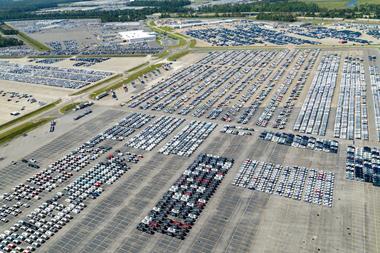
Carmakers and suppliers need to keep up with the latest technological advances to maintain quality while achieving faster delivery times, so customers can be retained and profit secured in a competitive market that will become defined by greater complexity over the coming years.
 This webinar, presented by Ryder, showcased strategies for helping businesses in the automotive industry maximize their cross-border supply chains. Learn what you can do to stay ahead of the game and avoid disruptions to your cross-border supply chain.
This webinar, presented by Ryder, showcased strategies for helping businesses in the automotive industry maximize their cross-border supply chains. Learn what you can do to stay ahead of the game and avoid disruptions to your cross-border supply chain.
This complimentary session explored strategies for streamlining import-export operations, including:
- Mapping out the flow of materials
- Opening lines of communication
- Avoiding border delays
- Using interchange agreements to eliminate border trans-loads
- Increasing vigilance around security
This webinar was presented by:
 Frank Bateman Director of Customer Logistics for Ryder Supply Chain Solutions
Frank Bateman Director of Customer Logistics for Ryder Supply Chain Solutions
Frank leads the Ryder Cross-Border Solutions team that provides 3PL, Transportation Management, Distribution Management, and Customs Brokerage services to customers on both sides of the U.S.-Mexico border, managing more than 80 carriers and 3,000 border crossings per week. He holds degrees in International Business and Spanish from Niagara University and an MBA from the University of Texas-El Paso.
![]()
Ryder System, Inc. is a leading provider of commercial transportation, logistics, and supply chain management solutions, serving customers throughout North America, Europe and Asia. Over the past 80 years, Ryder has earned a reputation for delivering solutions that ease complexity and increase efficiency for companies of all sizes. An industry-leading FORTUNE® 500 company, Ryder’s products and services encompass everything from fleet management to large-scale supply chain solutions and turnkey transportation solutions, making commerce flow more efficiently, reliably, and safely. Ryder Supply Chain Solutions manages the flow of goods from the acquisition of raw materials to the delivery of finished products.





















